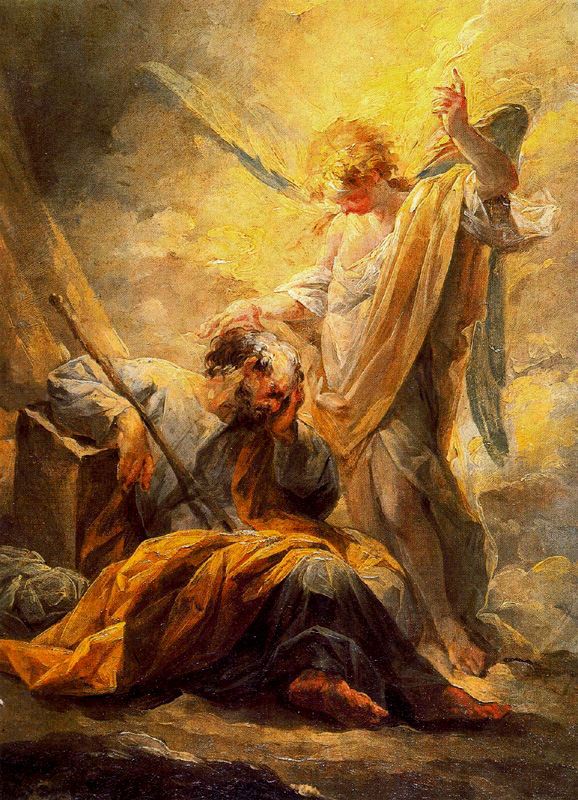Fr Paolo Consonni, MCCJ
This weekend, football fans will be focused on the last stage of the World Cup in Qatar. Here in Macau, because of the different time zone, many will spend sleepless nights in order to enjoy the excitement of the finals. After one month of games, we will finally know the winning team.
Hopefully, the World Cup will not overly distract us while we enter the last stage of Advent, when, as in the final matches, much focus is needed. Fortunately, we still have one full week ahead of us before Midnight Mass, because this year Christmas falls on Sunday. Now is the time to increase our spiritual focus.
The protagonist of the Gospel of this fourth Sunday of Advent (Matthew 1:18-24) is Joseph, in turmoil after discovering that his betrothed wife, Mary, was mysteriously pregnant.
Joseph needed to discern what to do in this delicate situation. As teams compete hard to advance into the finals of the World Cup, during the process of discernment different feelings and thoughts similarly fiercely compete with each other, and not necessarily what is initially stronger will prevail at the end.
In his weekly Wednesday’s catechesis, Pope Francis has been recently teaching about this topic, and especially stressing the need for understanding the roles of “desolation” and “consolation” when making a decision. Recalling St. Ignatius of Loyola, Pope Francis reminded us that at any given moment both the “good spirit” and the “bad spirit” are working to attract us in their own area of influence: the good spirit helps us to make good decisions while the bad spirit separates us from God. The tricky part of the process is that the bad spirit often disguises itself as the good spirit, deceiving us into choosing something “bad” while thinking it is “good”. As in a football match, nothing can be taken for granted till the very end of the game!
Let’s take this Sunday’s Gospel as an example. In spite of being devastated by the news of Mary’s pregnancy (desolation), Joseph began his discernment with a good intention: the desire to be just and to remain within the framework of Moses’ law (consolation). He was pained (desolation) at the thought of seeing Mary publicly shamed or stoned to death, as the law prescribed if the crime was officially denounced, but he found some peace (consolation) by making the decision to send her away quietly, in a private manner. All his feelings of consolation and desolation were clearly from God, helping Joseph to make the decision to protect Mary.
The game, however, was not over yet for the bad spirit. He might have used at this point subtle ways to tempt Joseph by saying: “Good enough, you have already done a lot for this woman. Now forget about her and start your life afresh with another wife!”. From a superficial point of view, this is not a “bad thought”; on the contrary, it seemed like a very reasonable choice, but not the one God wanted Joseph to make!
Interestingly, it was through Joseph’s subconscious mind, a dream, that God continued Joseph’s discernment process. Bishop Fulton Sheen once said that “God speaks more frequently through our subconscious mind, than through our conscious mind, simply because our self-consciousness puts up obstacles to Him”. With great spiritual maturity, Joseph understood that the unsettling message of taking a pregnant woman as wife (desolation), he received in the dream was indeed coming from God, and accepted the fact that only by obeying it he could find deep and lasting peace, which are the signs of true consolation.
Awake, Joseph had to bring God’s message coming to the subconscious into full awareness and take responsibility for it. It was then that he made the final decision to welcome Mary and her child into his life, something which might have been unthinkable at the initial stage of the discernment process.
Pope Francis, speaking of St. Joseph said: “Often in life, things happen whose meaning we do not understand. Our first reaction is frequently one of disappointment and rebellion. Joseph set aside his own ideas in order to accept the course of events and, mysterious as they seemed, to embrace them, take responsibility for them and make them part of his own history. […] The spiritual path that Joseph traces for us is not one that explains, but accepts. Only as a result of this acceptance, this reconciliation, can we begin to glimpse a broader history, a deeper meaning”. (Patris Corde 4)
Once the World Cup is over, another one will soon be set in motion. The process of discerning God’s will for us is also an on-going, life-long commitment. “Do not be afraid” the angel told Joseph as it had previously told Mary. Let’s face this commitment without fear. Conscious or unconscious consolations and desolations might come and go. But when taking decisions, let’s be fully awake and fully welcoming, like Joseph, longing for the ultimate prize of doing God’s will: a deep and lasting inner peace.
(Image: Saint Joseph’s Dream by Vicente López Portaña 1772-1850).


 Follow
Follow


